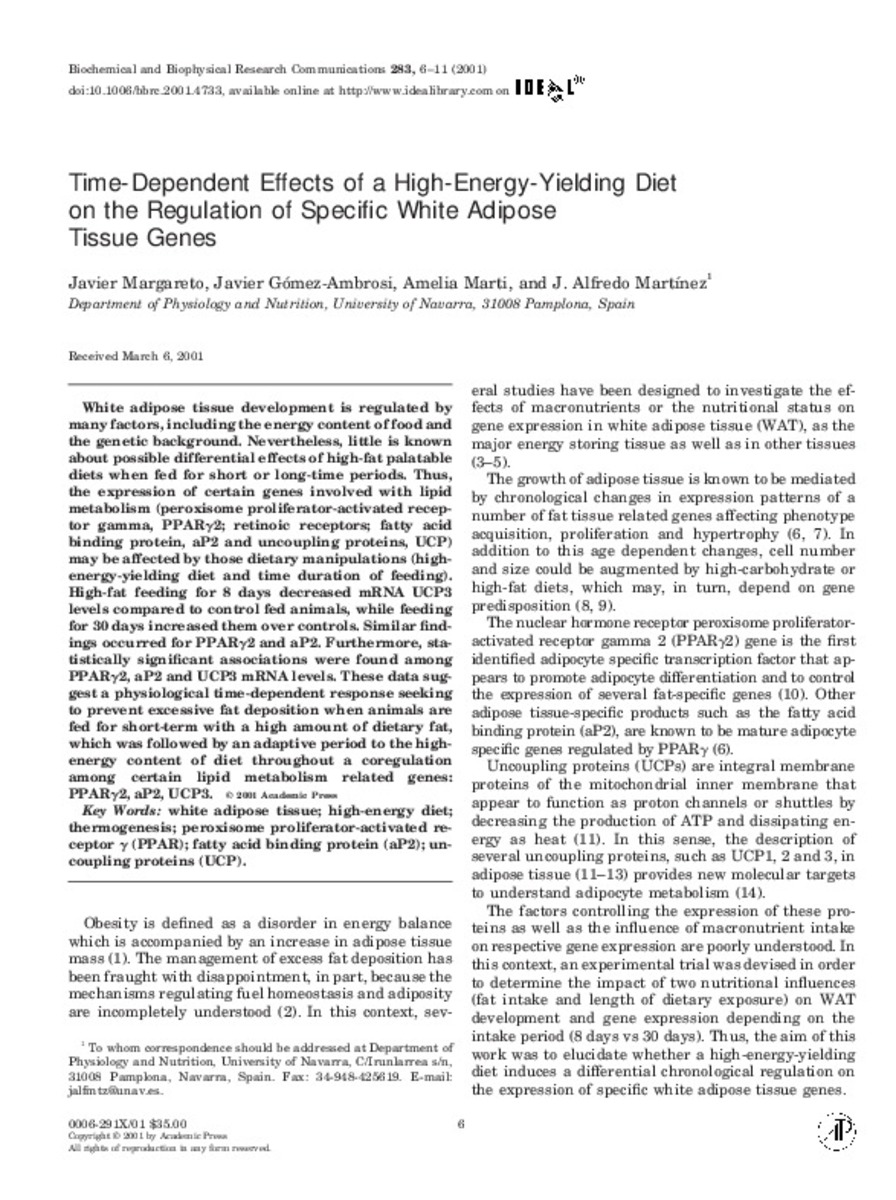Time-dependent effects of a high-energy-yielding diet on the regulation of specific white adipose tissue genes
Palabras clave :
White adipose tissue
High-energy diet
Thermogenesis
Peroxisome proliferator-activated receptor γ
Fatty acid binding protein
Uncoupling proteins
Fecha de publicación :
2001
Cita:
Margareto J, Gomez-Ambrosi J, Marti A, Martinez JA. Time-dependent effects of a high-energy-yielding diet on the regulation of specific white adipose tissue genes. Biochem Biophys Res Commun 2001 Apr 27;283(1):6-11.
Aparece en las colecciones:
Estadísticas e impacto
0 citas en

Los ítems de Dadun están protegidos por copyright, con todos los derechos reservados, a menos que se indique lo contrario.







